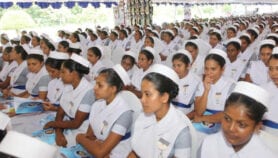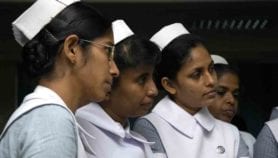By: James Njoroge
Send to a friend
The details you provide on this page will not be used to send unsolicited email, and will not be sold to a 3rd party. See privacy policy.
[ARUSHA, Tanzania] Younger scientists from developing countries who go to study in industrialised nations are more likely to return home than their older counterparts, according to a survey of trainees on a programme sponsored by the US National Institutes of Health (NIH).
The study — whose results were presented last week to the annual conference of the Global Forum for Health Research in Arusha, Tanzania — analysed the return rates of 187 trainees from 38 developing countries who had taken part in the Fogarty International Center’s (FIC) 15-year-old AIDS International Training and Research Programme.
It found in particular that trainees who earned a masters degree had the highest rate of return (89 per cent), followed by PhD (78 per cent), and postdoctoral trainees with the lowest rate at 68 per cent.
Peru and Thailand emerged as the two countries with the highest return rates — 100 per cent — followed by Brazil, Kenya, the Ivory Coast, Senegal and Taiwan. India and China had the lowest rate of return rates, at 31 per cent and 64 per cent respectively.
The study, which was carried out by the FIC, concludes that although a trainee’s decision on whether to return home appears related both to his or her country of origin and the level of training received abroad, it does not seem to depend on the length of time of training.
It proposes several strategies to curb brain drain in developing countries. For example, the authors of the study urge rich nations to help build health research infrastructure in developing countries, and suggest the creation of networks of former trainees. They also say that developing countries’ decision makers, administrators and senior scientists should be persuaded of the importance of building a strong scientific base in their country.
Related external links:
AIDS International Training and Research Programme













